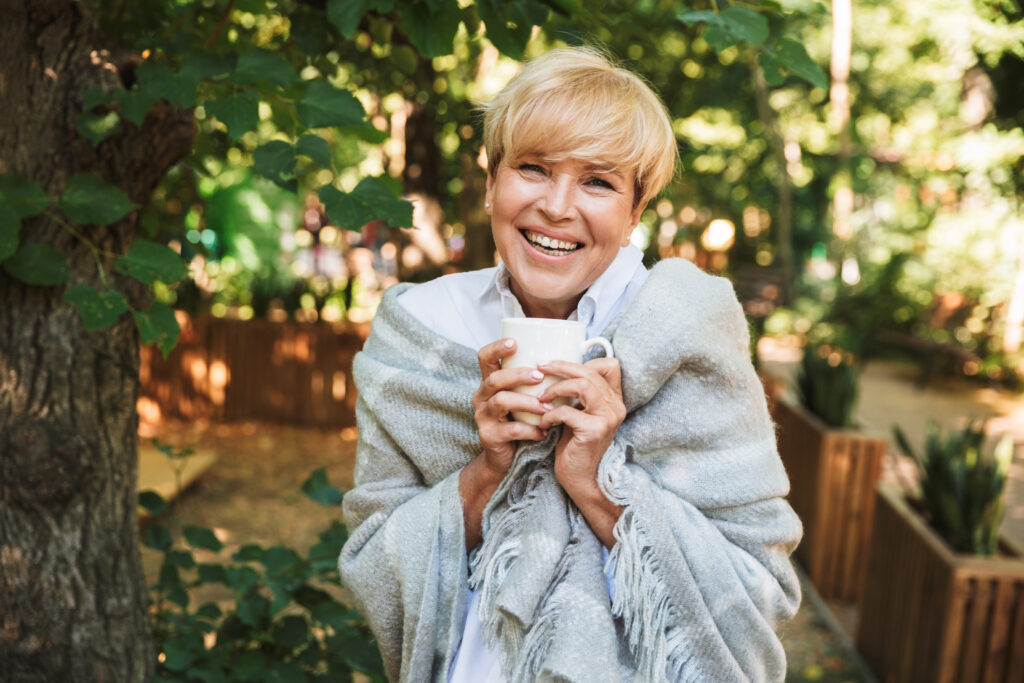As we age, building resilience is key. 44% of people over 50 face big changes in life. It’s vital to strengthen our emotional health and mental strength. But how can older adults build resilience after 50 and live well?
Resilience is not just about aging. It’s about adapting, overcoming challenges, and getting stronger. Studies show that staying connected with others can lower the risk of mental health issues by 25%. Regular exercise also boosts mental well-being.
Building resilience means making a positive impact. Having goals can make 60% of people feel more accomplished. Adding resilience tips and focusing on gratitude can change lives.
Resilience after 50 is about finding joy and purpose. It’s about being active and getting support. 75% of retirees say they feel stronger with a supportive community.
We’re going to look at ways to live a resilient life after 50. This includes finding new passions, eating well, and making time for peace. This guide is a path to thriving, not just surviving, in our later years.
Understanding Resilience and Aging Well
As people get older, the idea of senior resilience becomes more important. It’s not just about getting back up after a fall. It’s about doing well despite the tough times. Studies show that as we age, we can get better at overcoming challenges. This happens if we keep our mental wellness strong and do things that make our senior mental fitness better.

Research says that senior resilience comes from doing physical activities, being social, and doing mental exercises. These things help people handle aging well. This way, we keep our minds healthy and our bodies strong. Being part of a community, learning new things, and staying active are key to being resilient as a senior.
A study found that seniors who do both physical and mental activities are more resilient. This helps them deal with stress and might even lower the risk of Alzheimer’s disease. Also, having a big social circle and enjoying hobbies that make you happy are key to staying mentally well.
Everyone ages differently, but the basics of senior mental fitness help everyone on the path to health and happiness. By following these tips, seniors can live better lives. This shows that resilience can grow with age.
The Psychological Shifts for Senior Resilience
Women over 50 need a strong mental framework as they age. This framework helps with mental wellness and emotional health. Studies show that strong social ties and staying active help seniors feel resilient.
Being physically fit boosts mental wellness. Activities mentioned in the guide to fitness and exercise are key. They help women over 50 stay physically and mentally strong.
Mobility challenges often mark the initial stages of aging, yet with active lifestyle adaptations, the impact of these difficulties can be greatly moderated, enhancing quality of life and emotional health.
Having a strong social network is crucial for mental wellness. It helps women over 50 deal with midlife changes and stress better. The AGNES study found that being active and having good social ties makes aging easier and more fulfilling.
Having a positive mental attitude is key for seniors facing life’s challenges. This mindset comes from being active in the community and doing personal activities. It sets the stage for good emotional health and resilient aging.
Senior Wellness: Strategies to Overcome Midlife Challenges
Entering midlife is often seen as a crisis, but for many, it’s a chance for growth and self-discovery. About 10 to 20 percent of adults go through a midlife crisis. This time is key for building mental strength and improving senior wellness, helping us overcome challenges.
Women might focus on their own needs after caring for others for years. Men might think about past choices and their future impact. Both highlight the need for healthy habits. Walking is a great example. It’s not just exercise; it’s a way to build resilience, lowering the risk of diseases like osteoporosis and breast cancer.

Supplements for hair, skin, and nails are important for those over 50. They show that outer health reflects inner well-being. By taking care of our bodies and exploring new hobbies, we can handle big changes better.
Sticking to a balanced diet and exercise routine helps us live longer and feel better. The benefits of a senior wellness plan are huge. They improve our physical health and make us emotionally stronger. Facing life’s changes with an open mind and a strong body can turn a midlife crisis into a new beginning.
Dealing with midlife challenges means using the right tools. AARP offers rewards and insurance plans through partners like Delta Dental. These programs help with money issues and make wellness in midlife easier to get into. They show how being prepared and seizing opportunities can lead to a happy life after 50.
Build Resilience After 50: Embracing Life’s Transitions
As people reach their 50s, they face many changes. These changes can be big, like retirement or health issues, or small, like new relationships. Aging well means seeing these changes as chances to grow. Setting new goals can make you 60% more likely to feel fulfilled and grow.
Being resilient means having strong social connections, being mindful, and finding ways to build resilience after 50. For seniors, moving to a senior living space can give them a new sense of belonging and freedom. They often find 30% more chances to grow by being part of a supportive community.
Learning new things and being creative helps seniors deal with big changes. Getting help from professionals can also boost resilience. This includes getting coping strategies and a place to think things over. You can learn more about this at wellness services for over 50s. Therapy or counseling can improve resilience by 80%.
It’s important to face fears, change how you see them, and practice mindfulness. This can cut anxiety in half, helping you handle life’s ups and downs better. Resilience tips like celebrating small wins can also increase confidence and motivation by 25%.
Getting used to life in later years is about making the most of change. Embracing new technology and experiences can open up new worlds for seniors. By focusing on resilience, seniors can not only adjust to change but also find new chances for growth and connection.

